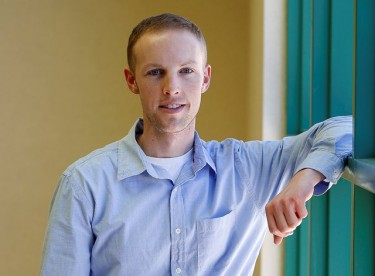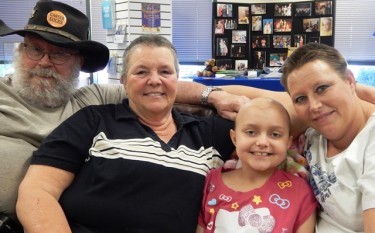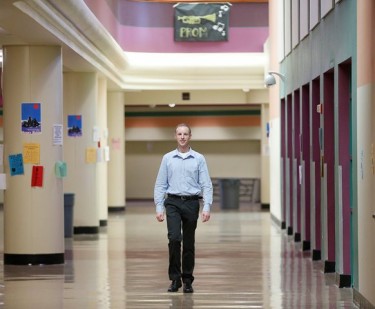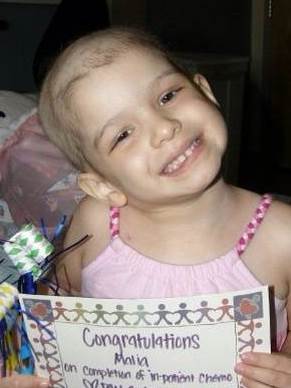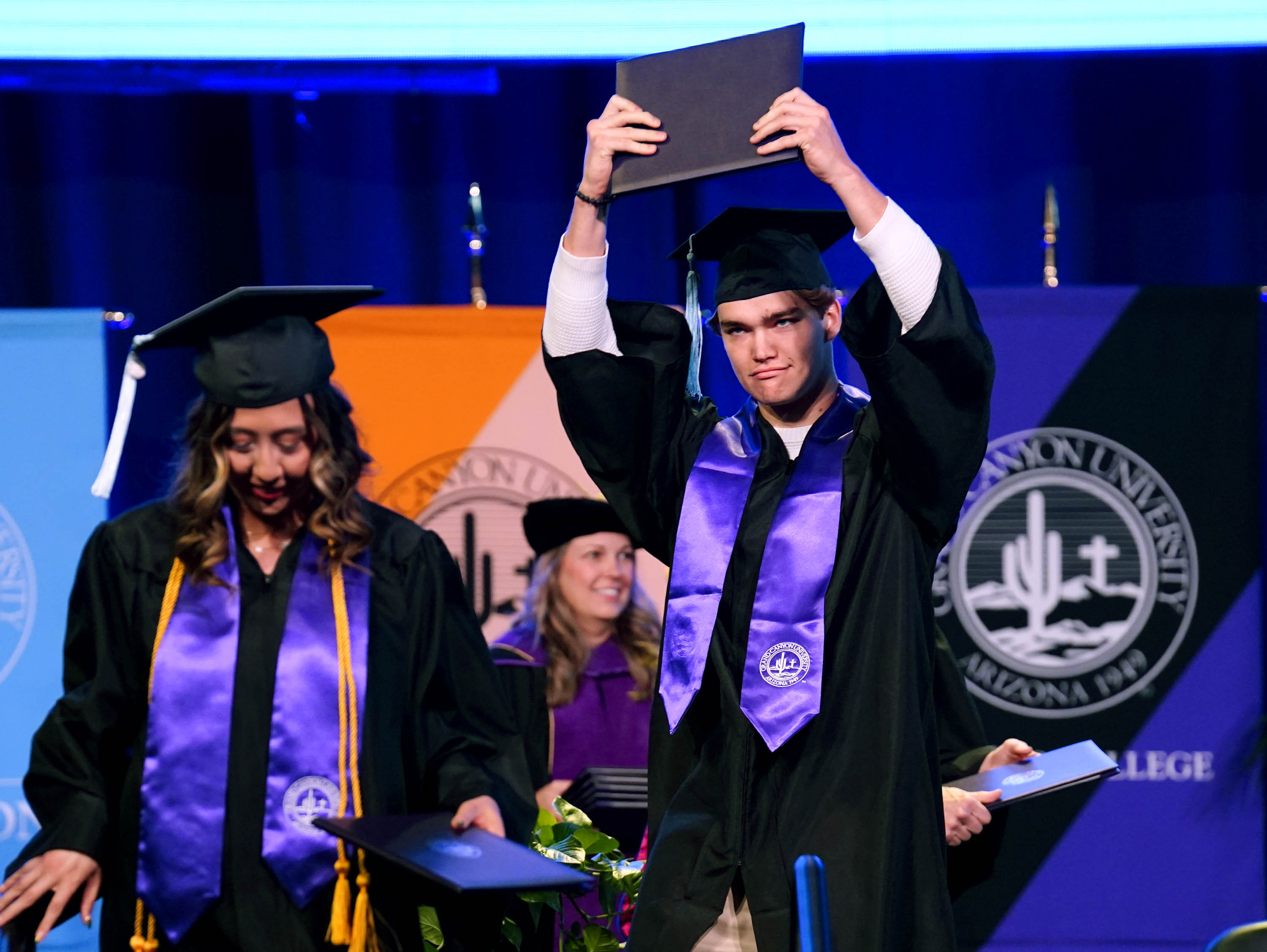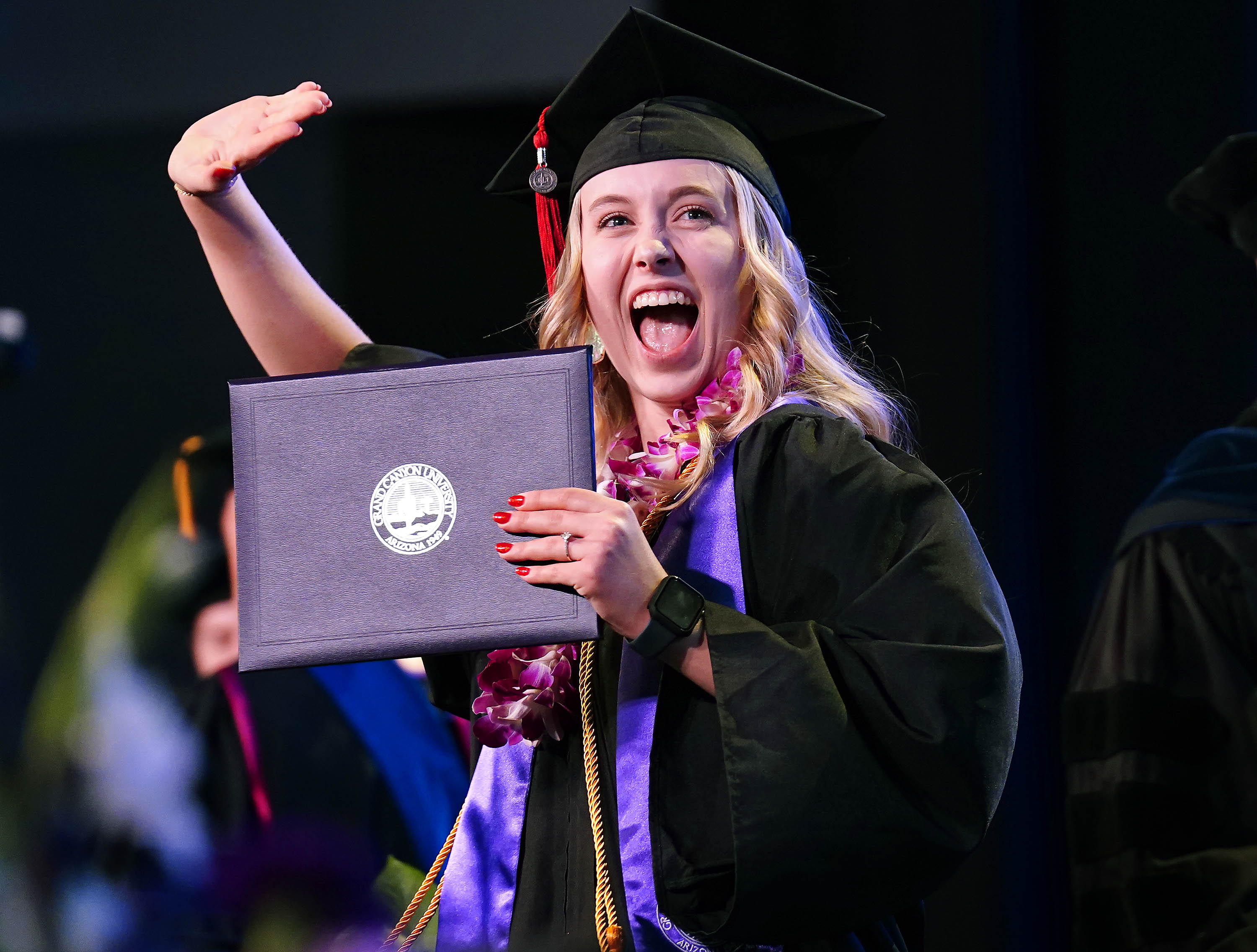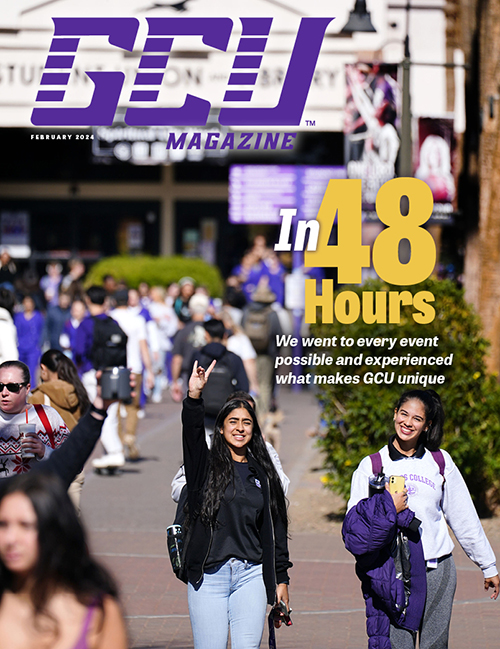By Janie Magruder
GCU News Bureau
As 10-year-old Shilynn Herrin battles an aggressive brain cancer that threatens her life, the last thing her family needs to worry about is affording gas to make the 200-mile round trip from their home in Eloy, Ariz., to a metro Phoenix hospital for her treatment and care.
When Jake Harvey was diagnosed with leukemia at 20, his promising career in political consulting took a detour, and he veered toward a steadier job in education. But Harvey needed a master’s degree to teach, and that meant taking out a loan to afford school.
The room was spinning around Tamara Hight when doctors described the liver cancer with which her preschool-aged daughter had just been diagnosed. She heard their words, but the magnitude of the disease didn’t register until a hospital worker brought her an inch-thick set of papers that she combed through at Malia’s bedside.
Gas cards, scholarships and answers are among the many forms of support for children with cancer and their families provided by the Center for Cancer and Blood Disorders at Phoenix Children’s Hospital (PCH) and Children’s Cancer Network (CCN). The services add up, and they are paid for, in part, by proceeds from the Grand Canyon University Foundation annual Run to Fight Children’s Cancer.
This year’s run, the fourth in Phoenix, will be Saturday, March 8, at GCU. (Visit www.runtofightcancer.com for information and to register.) To date, the events have raised nearly $200,000 for PCH and CCN.
Patti Luttrell, CCN’s executive director and an adjunct faculty member in GCU’s College of Nursing and Health Care Professions, said more than 600 Arizona families received assistance from the nonprofit in 2013. That level of support would not have been possible without GCU’s help, Luttrell said.
“GCU has really put a face on CCN that is recognized throughout the state,” she said. “We appreciate the University’s financial and public relations support, and the race itself is so incredible because it allows our families to participate and to feel the support of the community.”
At PCH, programs such as Camp Rainbow, for young cancer patients and survivors, the Ronald McDonald Houses and research on the genetic causes of pediatric cancers, which could yield earlier diagnosis and more effective treatments, are bolstered by the runs’ proceeds.
“These programs and services are completely funded through philanthropy and grant money, and without community support, we literally could not afford some of them,” said Cheriese Chambers, director of communications for PCH’s Foundation. “Without GCU and other organizations fighting the fight alongside us, we couldn’t do it.”
Contributions helped Luttrell and her husband, Steve, open a CCN resource center last year in Chandler. It’s a comfortable, welcoming space where kids with cancer can work on crafts, watch TV or rest, while adult family members find information, a good listener or a shoulder on which to cry.
Making cancer more manageable
On a recent weekday, Shilynn snoozed in a Hello Kitty T-shirt and cheetah spot/pink glitter high-tops, while her mother, Tina Anderson, and grandparents, Pat and Roy Anderson, discussed her prognosis. Shilynn was diagnosed with Glioblastoma Multiform in May and since has undergone two surgeries, chemotherapy and radiation. She has seizures, partial paralysis, weakness, hallucinations and short-term memory loss, offset by a ready smile and good humor that is contagious in her family.
Shilynn sometimes wears a perky bobbed wig, courtesy of CCN, to cover her mostly bald head. When she has medical appointments in Phoenix, her mother and grandparents travel with her, gratefully accepting CCN gas cards and a room at the Ronald McDonald House.
“We each are strong in our own way,” said Pat of the family’s need to stick together.
The Andersons are among CCN’s 50 adopted families that in 2013 received Christmas trees, gifts, food items and necessities. Shilynn also plans to model in CCN’s annual fashion show, auction and luncheon on Saturday, March 15, at the Arizona Biltmore.
Putting cancer in the past
Harvey was taking courses in political science, Latin American studies and Spanish at Northern Arizona University when he was diagnosed with acute lymphoblastic leukemia in 2009. He moved home to Chandler for chemotherapy, but continued his studies online and graduated in May 2010.
Harvey then worked an election cycle for the Arizona Democratic Party and was considering moving to Washington, D.C., for a Congressional aide position when his cancer relapsed. Fourteen months of intensive chemotherapy and cranial radiation followed, leaving him temporarily depressed and fatigued and permanently reconsidering his future. It bothered him that, while he was fighting cancer, his friends were landing jobs and making money.
“You say to yourself you’re going to be out in the world and your hair will grow back just like that,” Harvey said, snapping his fingers, “and it doesn’t happen like that. Before cancer, I was going to do all these different things, move to Seattle, travel the world. I still want to do those things, but maybe I’ll do them in baby steps.”
CCN has helped him with those psychological issues, and also awarded him a $2,000 scholarship toward earning a master’s degree in secondary education. He otherwise would have had to take out a bank loan. Harvey also received gift cards from CCN for the necessities to give him a good start in his new life.
“The work they do is so important, especially since the hospitals can only do so much,” said Harvey, now 25 and a teacher at his alma mater, Hamilton High in Chandler.
Easing cancer’s financial burden
Kyle Hight of Chandler makes no bones about the devastating effects cancer has had on his daughter and family. Malia, now 8, is five years post-treatment for hepatoblastoma, a rare tumor that took half her liver and a kidney and caused hearing damage.
“It broke us,” he said, referring to the bankruptcy he and his wife, Tamara, were forced to file after paying $70,000 in out-of-pocket medical bills that weren’t covered by his private insurance.
He is grateful to a PCH social worker who informed him that the hospital’s foundation could help with a mortgage payment and recommended other foundations that could do the same. He estimated receiving more than $6,000 in assistance to help his family’s listing bank account.
“It as a huge relief, just knowing that someone was there, and they understood, and weren’t judging you for your financial problems,” Hight said. “It didn’t change the outcome (bankruptcy), but it gave us some time to figure out how we were going to handle it.”
Just 12 days passed from the time the Hights first felt the two hard masses in their daughter’s belly to the removal of both tumors. It was too much, too fast. Tamara Hight needed to understand Malia’s illness, but she didn’t want to leave her little girl’s bedside to visit the Emily Center, a pediatric health resource center in PCH. She was grateful when a hospital worker brought the information to her.
“This was something that happened to other people, not to us,” she said. “I was able to at least feel I had some sense of what we were dealing with, something to hold onto.”
Contact Janie Magruder at 639.8018 or [email protected].

